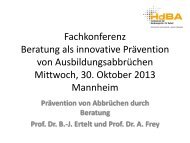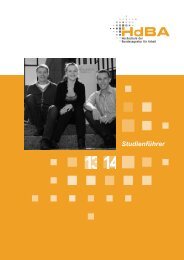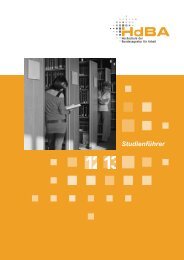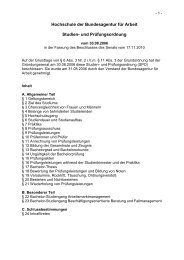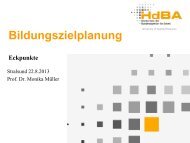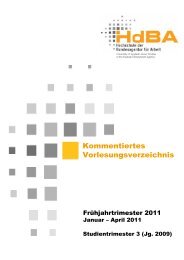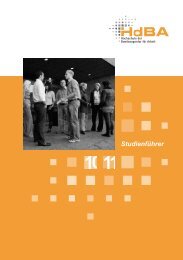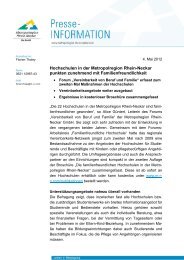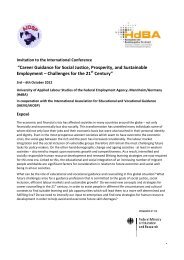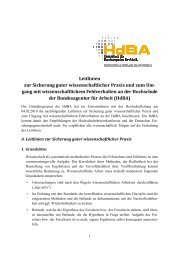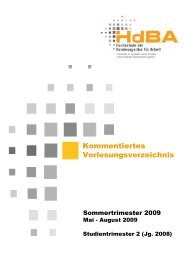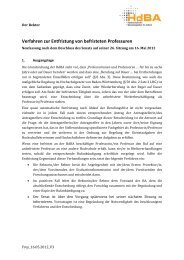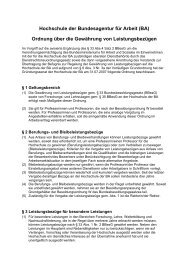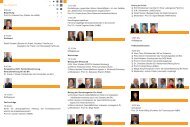Brain Drain - Hochschule der Bundesagentur für Arbeit
Brain Drain - Hochschule der Bundesagentur für Arbeit
Brain Drain - Hochschule der Bundesagentur für Arbeit
You also want an ePaper? Increase the reach of your titles
YUMPU automatically turns print PDFs into web optimized ePapers that Google loves.
������������������������������������������������������������������������������<br />
�����������������������������������������������������������������<br />
�<br />
�<br />
1.3 Unit 2: Knowledge Management and Information Acquisition<br />
Contents of this module shall be:<br />
• Systematic monitoring of the European and international information market,<br />
working with information sources for vocational and careers counselling<br />
• Evaluation of information sources with regard to their potential, effectiveness and<br />
relevance to a target group<br />
• Quality criteria: correctness, general validity, topicality, usefulness,<br />
comprehensibility, differentiation (the scope and depth), user-friendliness, access<br />
• Information overload in contemporary society:<br />
• The total supply of information in mo<strong>der</strong>n society is increasing faster than the<br />
demand for information. Therefore, the main problem is not the creation of new<br />
media and data but the stimulation of demand for information.<br />
6<br />
When information overload occurs, the quality of decision-making and problemsolving<br />
decreases, both on the social and individual scale<br />
Different models, techniques and methods of knowledge management are introduced<br />
to the participants. A well structured approach to collect new knowledge pools and to<br />
achieve already available knowledge help the students not only to overview the<br />
different national programmes but also to find out similarities and common<br />
emphases. Thus accurately fitting counselling for a wide range of different cases with<br />
different needs will be possible. They will learn, through cases in small teams, to<br />
organize precisely adjusted tailored programmes in the further offers of counselling<br />
and supporting services<br />
Managing individual information stress (Ertelt, 2001, pp 1385):<br />
1. Information chunks – summarizing available information with super ordinates.<br />
2. Omission – focusing on specific information and rejecting other content (partial<br />
absorption).<br />
3. Queuing – the recipient creates in the short-term memory a queue of incoming<br />
information to gain more time later for the selection of information to remember.<br />
4. Escaping – ceasing the receiving and processing of information at a certain point<br />
of information overload (“switching off”)<br />
5. Filtering – the offered information is perceived selectively through a filter of<br />
subjective criteria or search strategies.<br />
6. Abstracting – the individual receives only general information structures without<br />
paying attention to the details.<br />
7. Habituation - from a certain point of information overload, the individual follows<br />
only adopted patterns and the offered data is of secondary importance to the<br />
solution of the problem



